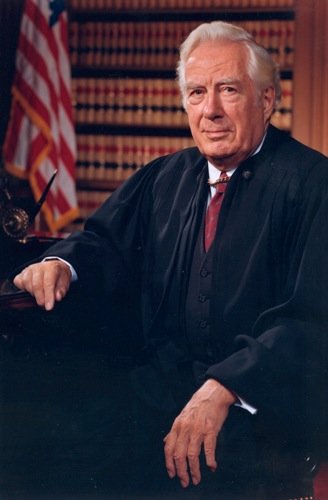United States v. Montoya de Hernandez
Case Overview
CITATION
473 U.S. 531
ARGUED ON
April 24, 1985
DECIDED ON
July 1, 1985
DECIDED BY
Legal Issue
Is the 16-hour detention of a someone suspected of smuggling drugs in balloons in her alimentary canal across an international border a reasonable stop under the Fourth Amendment?
Holding
Yes, an individual, while traveling across an international border, may be detained for a prolonged period of time if it is reasonably suspected that they are illegally smuggling drugs in their body.
Background
On March 5, 1983, Montoya de Hernandez flew into the Los Angeles International Airport from Bogota. While going through customs, the agent noticed that Hernandez had made eight recent trips to Miami and Los Angeles, so she referred her for further questioning. The agents also recognized Bogota as a “source city” for narcotics. When asked about the purpose of her trip, Hernandez claimed that she was in the US to purchase merchandise for her husband’s store in Bogota. However, she had no appointments with vendors, no hotel reservations, and $5,000 in cash. Eventually, a female customs inspector conducted a pat down search of Hernandez, during which she noticed a “firm fullness” in her abdomen. She also noticed that she was wearing two pairs of elastic underwear with a paper towel lining in the crotch area. Afterwards, the inspector told Hernandez that she could return to Columbia on the next flight, agree to an X-Ray, or remain detained until she had a monitored bowel movement to confirm the inspectors’ belief that she was smuggling drugs. Hernandez chose to return to Columbia on the next flight and waited under observation in the customs office. After 16 hours, Hernandez had still not produced a bowel movement, so the customs agents sought a court order to perform an X-Ray and rectal examination. After obtaining the order, a physician performed a rectal examination and discovered a balloon containing a foreign substance. Shortly after, Hernandez passed six more balloons and over a period of four days, she passed 88 more. In total, the balloons contained 528 grams of cocaine. The District Court admitted the cocaine-filled balloons as evidence against Hernandez and she was ultimately convicted. On appeal, the Ninth Circuit reversed Hernandez’s conviction before the US Supreme Court granted certiorari.
Summary
7 — 2 decision for the United States
Texas
Johnson
Powell
Rehnquist
Marshall
Blackmun
O’Connor
Stevens
White
Brennan
Burger
Opinion of the Court
Writing for the Court, Justice William Rehnquist asserted that at international borders, the Fourth Amendment’s balance of reasonableness is “qualitatively different” than in the interior of the country. Rehnquist explained that since our Nation’s founding, Congress has granted the Executive the authority to conduct routine searches and seizures at the border to prevent contraband from entering the country. Rehnquist rejected the Court of Appeals’ use of the “clear indication standard, stating, “we do not think that the Fourth Amendment’s emphasis upon reasonableness is consistent with the creation of a third verbal standard in addition to ‘reasonable suspicion’ and ‘probable cause.’” Instead, the Court held that the detention of an individual at the border is justified if customs agents have a reasonable suspicion that they are smuggling illegal drugs in their alimentary canal. In examining the facts of the case, Rehnquist gave great deference to law enforcement’s decision-making, stating that “we have cautioned that courts should not indulge in unrealistic second-guessing, and we have noted that creative judges, engaged in after the fact evaluations of police conduct can almost always imagine some alternative means by which the objectives of the police might have been accomplished.” Rehnquist pointed out that the customs agents offered Hernandez several options, including an X-Ray or monitored bowel movements, either of which would have shortened the time of her detention. He also noted that it was reasonable for the agents to expect Hernandez to use the restroom soon after her 10-hour flight from Bogota, but her decision not to cannot be attributed to law enforcement. Ultimately, Rehnquist concluded that Hernandez’s detention was long, uncomfortable, and humiliating, “but both its length and its discomfort resulted solely from the method by which she chose to smuggle illicit drugs into this country.”
Concurring Opinion by Chief Justice Stevens
In his brief concurring opinion, Justice John Paul Stevens explained that as a result of the Court’s ruling, a significant amount of innocent people will be subjected to the same kind of search as Hernandez, so the case cannot be decided solely on the basis of the method she chose to smuggle the drugs into the country. Instead, Stevens argued that the search and detention of Hernandez was justified by her choice to withdraw her consent from an X-Ray exam, which would have quickly determined if she was smuggling illegal drugs.
Dissenting Opinion by Justice Stevens
In his dissenting opinion, Justice William Brennan Jr. took a more sympathetic position towards Hernandez and argued that searches similar to what she was subjected to are exactly what the Fourth Amendment was designed to prevent. Speaking on the facts of the case, Brennan wrote that “[t]he nature and duration of the detention here may well have been tolerable for spoiled meat or diseased animals, but not for human beings held on simple suspicion of criminal activity.” While he acknowledged Hernandez’s guilt, he argued that “such after the fact rationalizations” are irrelevant to the Fourth Amendment, “which demands that we prevent hindsight from coloring the evaluation of the reasonableness of a search or seizure.” Brennan’s dissent warned of the dangers of encroaching on the rights enshrined in the Bill of Rights, concluding that “[h]istory bears testimony that by such disregard are the rights of liberty extinguished, heedlessly at first, then stealthily, and brazenly in the end.”









